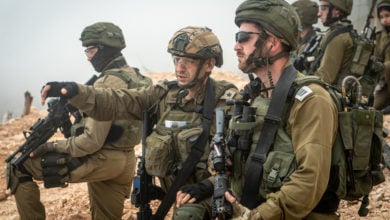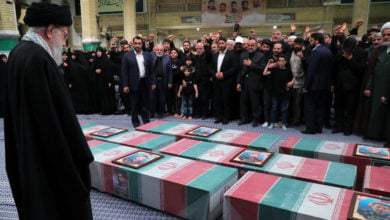On Jan. 15, two bombs exploded at Aleppo University in Syria’s second largest city, killing at least 80 people and injuring hundreds. Among the victims were internal refugees from the conflict who had been provided shelter in university dormitories by the Syrian government.
The attack came a week after the Free Syrian Army announced that only a military solution can resolve the conflict. The announcement, made by spokesperson Abdulhamid Zakariya, was the opposition’s rejection of President Bashar al-Assad’s Jan. 6 speech, which sketched a political solution to end the bloodshed. Assad’s proposal was premised on an immediate ceasefire and included the drafting of a new constitution.
The government has enacted numerous reforms in an attempt to end the conflict, which began in March 2011. Among these reforms was the drafting of a new constitution that among other things nationalized public utilities and natural resources and related institutions and facilities, and was passed by 89 percent of the vote in Feb. 2012. Additionally, the state has reversed some of the cuts to social programs like food subsidies that provided one of the impetuses for the initial uprising.
The FSA, however, has been consistently unwilling to accept any compromise or political solution to the conflict.
Syrian opposition grows increasingly isolated
As the conflict has worsened and the reactionary character of the opposition has become unmistakable to Syrians, popular support has shifted definitively in favor of the government. This is illustrated clearly in Aleppo, which has long been considered an opposition “stronghold.” By the FSA’s own admission, 70 percent of city residents support the Assad government. (Reuters, Jan. 8) Abu Ahmed, who commands the Tawheed Brigade in the city, attributed the support to the widespread looting and other criminal acts committed by opposition fighters.
Indeed, it seems that Aleppo residents live in a perpetual state of terror, as evidenced by a note passed secretly by a couple to a foreign reporter, which read, “We used to live in peace and security until this malicious revolution reached us and the Free Syrian Army started taking bread by force.” (Reuters, Jan. 8)
While the looting, abuses of power and other reactionary actions are unsurprisingly attributed to a few “bad apples” and unruly military units, official actions taken by the rebels in the city contradict that claim. As one example, in December 2012 the “Revolutionary Military Council” in Aleppo released a statement in which they prohibited women from driving.
The FSA is also becoming isolated in the countryside, where many of the rebel units originated. There have been reports that they have established a religious police force in the town of al-Bab that is enforcing strict religious codes and forcing people to pray.
Throughout the country, the FSA has committed war crimes such as the kidnapping, torture and execution of pro-government civilians that have been documented by Human Rights Watch and other organizations.
Calls for more intervention grow louder
In Assad’s speech this month, he called on foreign governments to cease arming and funding opposition fighters. In response, the FSA called for more intervention from NATO and its allies.
The U.S., British, Israeli, Qatari and Saudi Arabian governments have all been financing the FSA. Saudi Arabia has granted pardons to death row inmates in exchange for undergoing military training and joining the Syrian rebels, according to documents leaked from the Interior Ministry. (Examiner, Dec. 9, 2012)
Turkey, which has already invaded Syrian air space and launched strikes into the country, is in the process of obtaining and deploying Patriot surface-to-air missiles from NATO along the border. On Jan. 14, a spokesperson for NATO announced that the missiles will be operational in early February at the latest.
On Jan. 13, Qatar’s prime minister and foreign minister called for Arab states to “think seriously about sending forces to ensure security in Syria.”
In the face of the increased possibility of overt foreign intervention in Syria, progressives and revolutionaries in the U.S. and elsewhere must, in both word and deed, unconditionally demand “Hands off Syria!” The war in Syria, after all, is not reducible to “Assad versus the people,” nor is it an “inter-imperialist” conflict between the U.S. and Russia. The struggle in Syria is a struggle over the national sovereignty of a historically oppressed state; it is a struggle between forces fighting to defend the country’s sovereignty, including the Syrian Arab Army, and forces that are openly collaborating and allied with imperialism.






